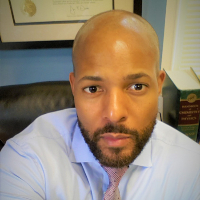Holly Springs Felony Lawyer, Georgia
Sponsored Law Firm
-
 x
x

Click For More Info:
-
Ronald Baker Attorney at Law
11877 Douglas Rd Suite 102191 Johns Creek, GA 30005» view mapIntellectual Property Law Working Relentlessly For You
Ronald Baker is a practicing lawyer in Georgia who handles cases involving Intellectual Property Law.
800-597-8640
Thomas Ford
✓ VERIFIEDCriminal, DUI-DWI, Felony, RICO Act, White Collar Crime
Expect Results. Not Excuses
Quinn Johnson
✓ VERIFIEDCriminal, Felony, Misdemeanor, Traffic, Juvenile Law
Quinn Johnson is the principle of The QUINN JOHNSON LAW FIRM, P.C. Our firm has earned a reputation of getting results on behalf of our clients thr... (more)
Cory Yager
Criminal, DUI-DWI, Misdemeanor, Felony, Juvenile Law
Cory Yager is a lawyer in Atlanta who focuses on Juvenile Crimes cases. He has tried cases involving expungement, traffic violations, solicitation, DU... (more)
FREE CONSULTATION
CONTACTFREE CONSULTATION
CONTACTCarlton Crow Carter
Criminal, DUI-DWI, Felony, Misdemeanor
Status: In Good Standing Licensed: 44 Years
Richard Grossman
Grand Jury Proceedings, Federal, Felony, Criminal
Status: In Good Standing Licensed: 32 Years
FREE CONSULTATION
CONTACTRobert Rogers Giannini
Personal Injury, Car Accident, Felony, DUI-DWI
Status: In Good Standing Licensed: 24 Years
FREE CONSULTATION
CONTACT Ronald Baker Johns Creek, GA
Ronald Baker Johns Creek, GA




